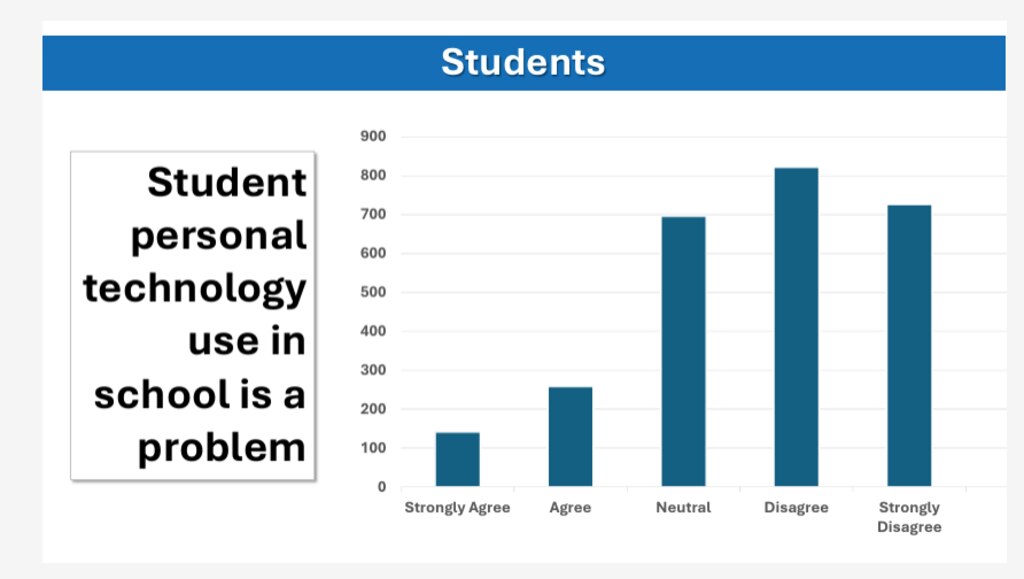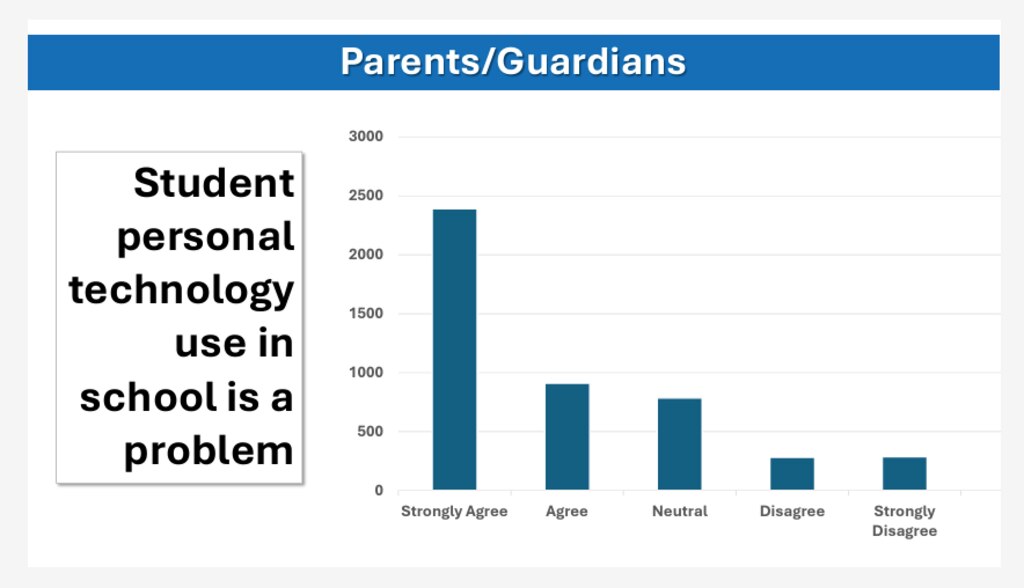Howard County parents and school staff overwhelmingly agree that cellphones are a distraction in classrooms, a recent survey shows. Students, on the other hand, want to remain glued to their devices.
Howard County Public Schools has joined a local and national movement to crack down on students’ phone use in classrooms. It’s considering updating a countywide policy that spells out when it’s OK for kids to have their devices and what the consequences should be when they break the rules.
Superintendent Bill Barnes has said that he observed a significant number of students on their cellphones when he visited middle and high school classrooms his spring, and that phones were the No. 1 shared concern among teachers.
While over 9,300 students, school staff, parents and community members answered the cellphone survey, only a handful, predominantly parents, spoke at a school board public hearing on the matter.
Here are some tidbits from the survey results and Thursday’s public hearing.
Yes, phones are a distraction, say faculty and parents
If Howard County students thought their parents would be in their corner about keeping cellphones in classrooms, they were sorely mistaken.
On several of the survey questions, parents and guardians were aligned with school staff that the devices are a distraction in classrooms and that students should not have access to devices during classroom instruction.


“We must be the adults in the room and finally, come together as a community to recognize the harm cellphones cause to mental health and the ability of students to learn,” Ryan Powers, a community member, testified Thursday night.
But when it comes to safety, parents and school staff disagree
Many parents want their children to have access to their cellphones for emergencies, survey results show. They want to be able to reach their children in the event of a school shooting, for example.
Some parents also want their children to use their phones to coordinate early school pickup if they’re sick, or make arrangements for after-school activities and transportation.
Roughly 1,000 parents surveyed strongly agreed that students need their cellphones for safety, while a little over 1,200 strongly disagreed. Meanwhile, fewer than 200 school staff members strongly agreed, while close to 600 respondents said students don’t need access to their cellphones for safety reasons.
Lindsay Unger, a parent of two children in the school system, testified that cellphones are negatively impacting student safety in school-wide emergencies.
“Studies show that while devices potentially make kids feel safer when it comes to mass threats, in practice, they are negatively impacting the safety of all students in school-wide emergencies, causing misinformation, additional panic and network congestion,” Unger said.
However, parents are in agreement with staff that students do not need their own devices to communicate with family and others during the school day.
Students, overwhelmingly, want their phones during the school day
Students disagree that their use of personal technology during the school day is a problem, according to survey results.
The overwhelming majority of student survey participants also think they should be able to have their cellphones during the school day for safety reasons, for classroom instruction and to communicate with their families during school hours. They were in favor, though, of restricting phone access for elementary students.
They also disagreed with a survey question asking if all personal technology — cellphones, headphones, smart watches — should be treated the same.
Gavin Falcons, a sophomore at Long Reach High School who spoke Thursday night, feels that current cellphone policies don’t prepare students for the real world.
“We need a policy that teaches the students self-restraint, a policy which gives students responsibilities now so they know what to do later in life. If we don’t do so, I would like to ask, what is the purpose of high school? Because the way I know it is to prepare students for the real world,” Falcons said.
Falcons also asked that the school board consider exceptions so students can get in contact with their parents if necessary.





Comments
Welcome to The Banner's subscriber-only commenting community. Please review our community guidelines.